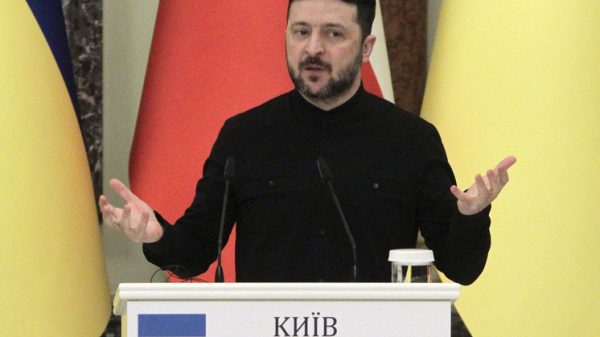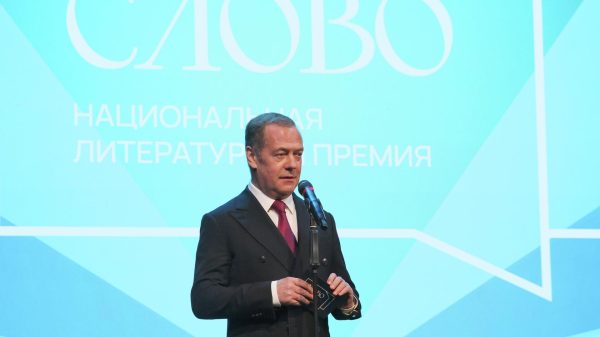
Coronavirus vaccines are administered at a vaccination centre in Rome on Tuesday
Credit: Simona Granati/Corbis via Getty Images
The European Union began blocking exports of the Oxford/AstraZeneca Covid vaccine on Thursday as Europe’s leaders finally admitted they were wrong about the jab and that it worked.
EU countries now recognise that the vaccine is vital to ramping up the slow pace of their vaccine programmes – which lag far behind Britain, the US, Serbia and Israel – after attacking AstraZeneca for delivery failures and branding its vaccines "ineffective".
Germany made the vaccine available to over-65s after Angela Merkel called for age restrictions to be lifted. New data had proved the jab was "highly effective". Jens Spahn, the country’s health minister, said: "This is good news for any elderly person waiting to be vaccinated. They can now be vaccinated faster."
Jean Castex, the French prime minister, said the AstraZeneca vaccine was "very efficient" and as good as the other EU-approved jabs.
In January, Emmanuel Macron, the French president, sparked fury when he called the vaccine only "quasi-effective" in older people, comments thought to have slowed French vaccinations even further.
Greece and Sweden announced they would lift age restrictions on the vaccine following Belgium, with Spain considering following suit as realisation dawns that countries were wrong not to follow Britain’s lead in approving the jab for all ages.
Italy became the first country to impose an EU export ban on coronavirus vaccines on Thursday after blocking a shipment of 250,000 AstraZeneca jabs to Australia. Brussels introduced the export transparency regime during its row over supply shortfalls with the British-Swedish pharmaceutical company at the end of January.
Under the new rules, manufacturers in the EU must ask national authorities in the country of production and the European Commission for permission to export vaccines outside the EU.
Italy blocked the export of the vaccines and the commission did not raise any objections, the Financial Times reported. Rome notified Brussels of its decision at the end of last week.
Mario Draghi, the Italian prime minister who took office in February, called for stricter export controls at an EU summit last month. He was described as "defending Italy’s national interests".
But the former Brexit Secretary David Davis told The Telegraph: "Frankly, it amounts to disgraceful behaviour.
"It comes at the end of a period where it took them a long time to approve the vaccine, then some of their leaders questioned the value of the vaccine, and it looks likely they wasted the vaccine as a result of that because of an uptake shortfall.
"And now this. I’m afraid the EU is putting at risk the goodwill of the rest of the world. It is disgraceful behaviour and sad really, because they are our friends and allies."
David Jones, the deputy chairman of the European Research Group, said it looked like "piratical" behaviour.
Italy has 1.5 million AstraZeneca vaccines and has administered 322,800 doses. In total, it has given out 4.3 million vaccines from all companies. The EU has administered 8.02 doses per 100 people, while the UK has given out 32.34.
The country appears to be on the cusp of a third wave of the Covid pandemic, with the pace of its vaccination programme stuttering. On Wednesday, nearly 350 deaths were reported, along with more than 20,000 new cases.
The Italian foreign ministry said it objected to the "very high" number of doses that AstraZeneca wanted to export and pointed to "delays on the part of AstraZeneca in the supply of vaccines" for the export ban. It said Australia had had very few Covid cases and deaths compared to Europe and noted the dearth of jabs in Italy and other EU nations.
The company had requested permission to export the 250,000 doses from its Anagni plant near Rome.
EU sources said the commission backed the Italian decision because of AstraZeneca’s failure to respect its contractual obligations. The company insists it is not in breach of contract.
In January, it cut its supplies to the EU in the first quarter to 40 million doses from 90 million foreseen in the contract, and later said it would cut deliveries by another 50 per cent in the second quarter.
An EU diplomat said: "Italy has sent a crystal clear message to AstraZeneca. Contracts are to be honoured." The diplomat said reduced vaccine deliveries to the EU were "putting 30 million European lives at risk".
Britain feared it would be the first victim of an EU vaccine exports ban at the height of the commission’s row with AstraZeneca earlier this year. Brussels threatened to trigger Article 16 of the Northern Ireland protocol, which would impose a hard border on the island of Ireland and prevent jabs reaching mainland Britain, but dropped the threat.
On Thursday, the European Medicines Agency began a rolling review of the Russian Sputnik vaccine in a first step towards authorising the jab as the bloc looks to ramp up its sluggish rollout.
Hungary and Slovakia have already secured two million doses without awaiting EU approval. French officials were reported to be furious that the countries were seeking vaccines outside the bloc’s slower scheme while still benefiting from it.
The Austrian chancellor and Danish prime minister travelled to Israel to announce they would work with Israel to develop second generation Covid vaccines in another sign of ebbing support for the EU joint approach.
Benjamin Netanyahu, the Israeli prime minister, claimed that "many other countries" had called him, asking to be part of the same scheme, which was criticised by the French foreign ministry.

























































Свежие комментарии